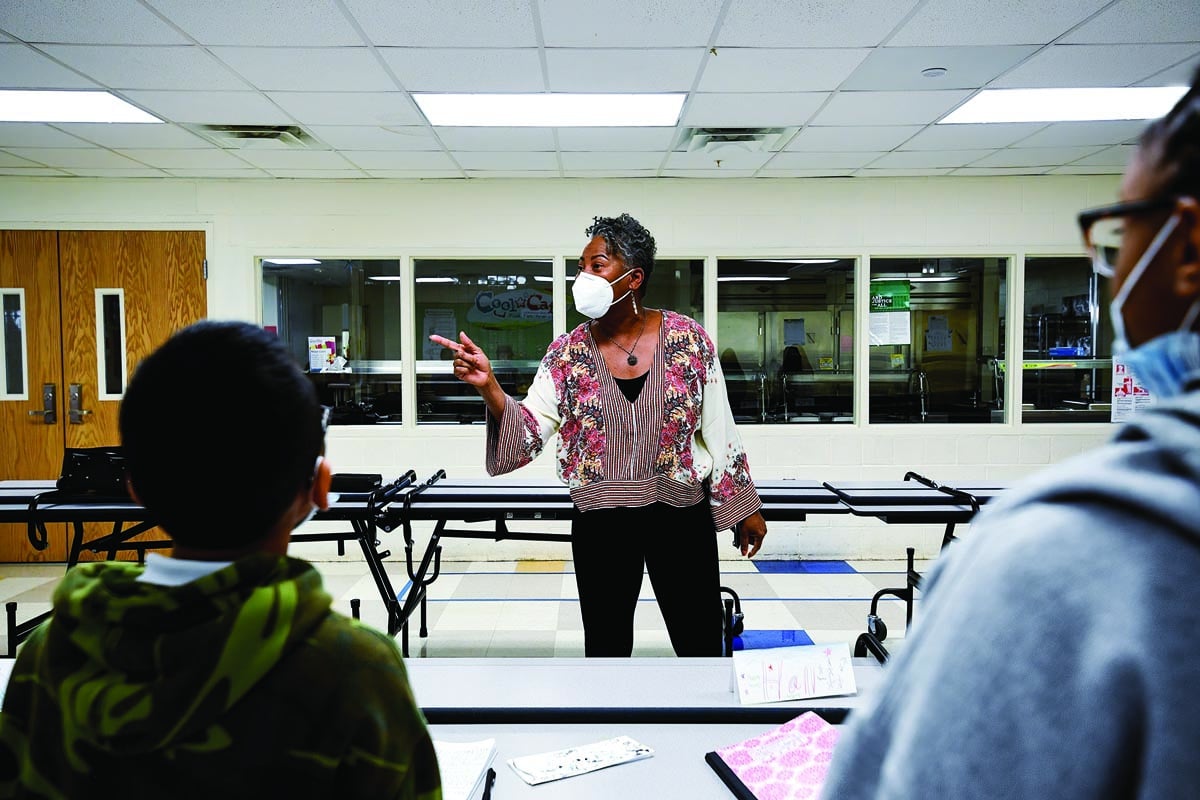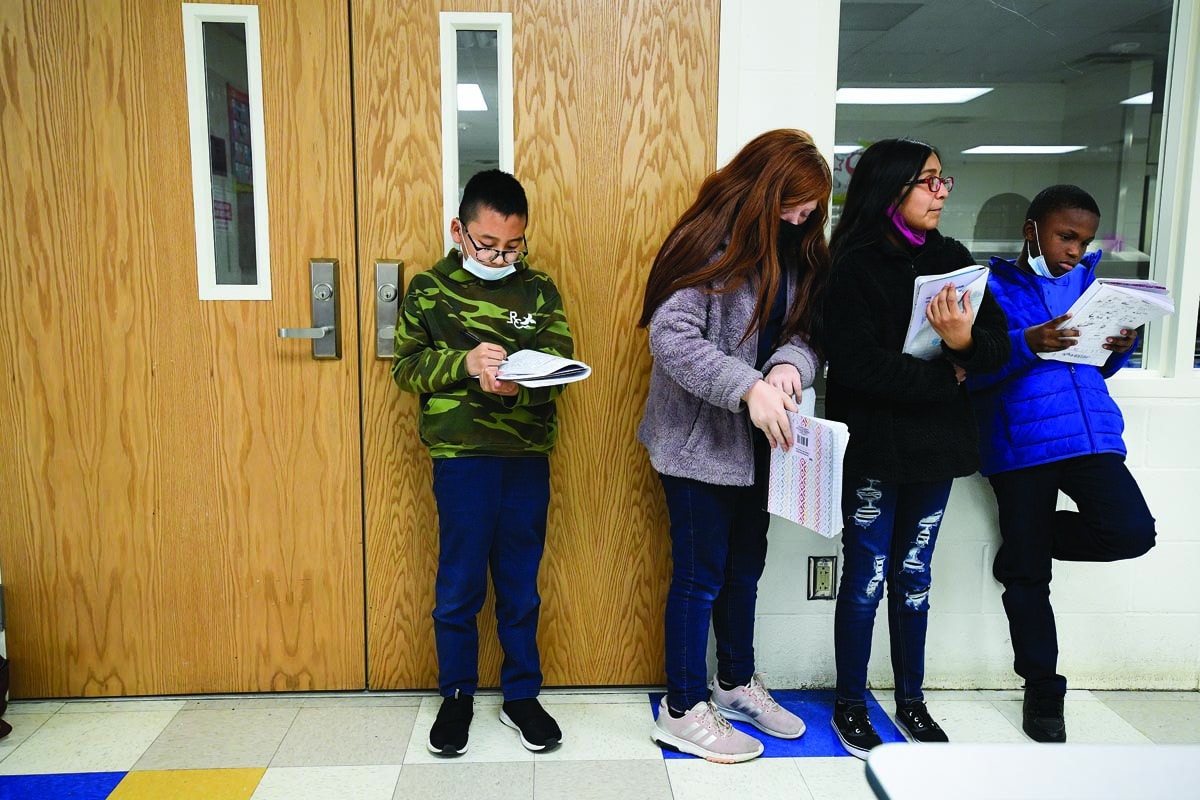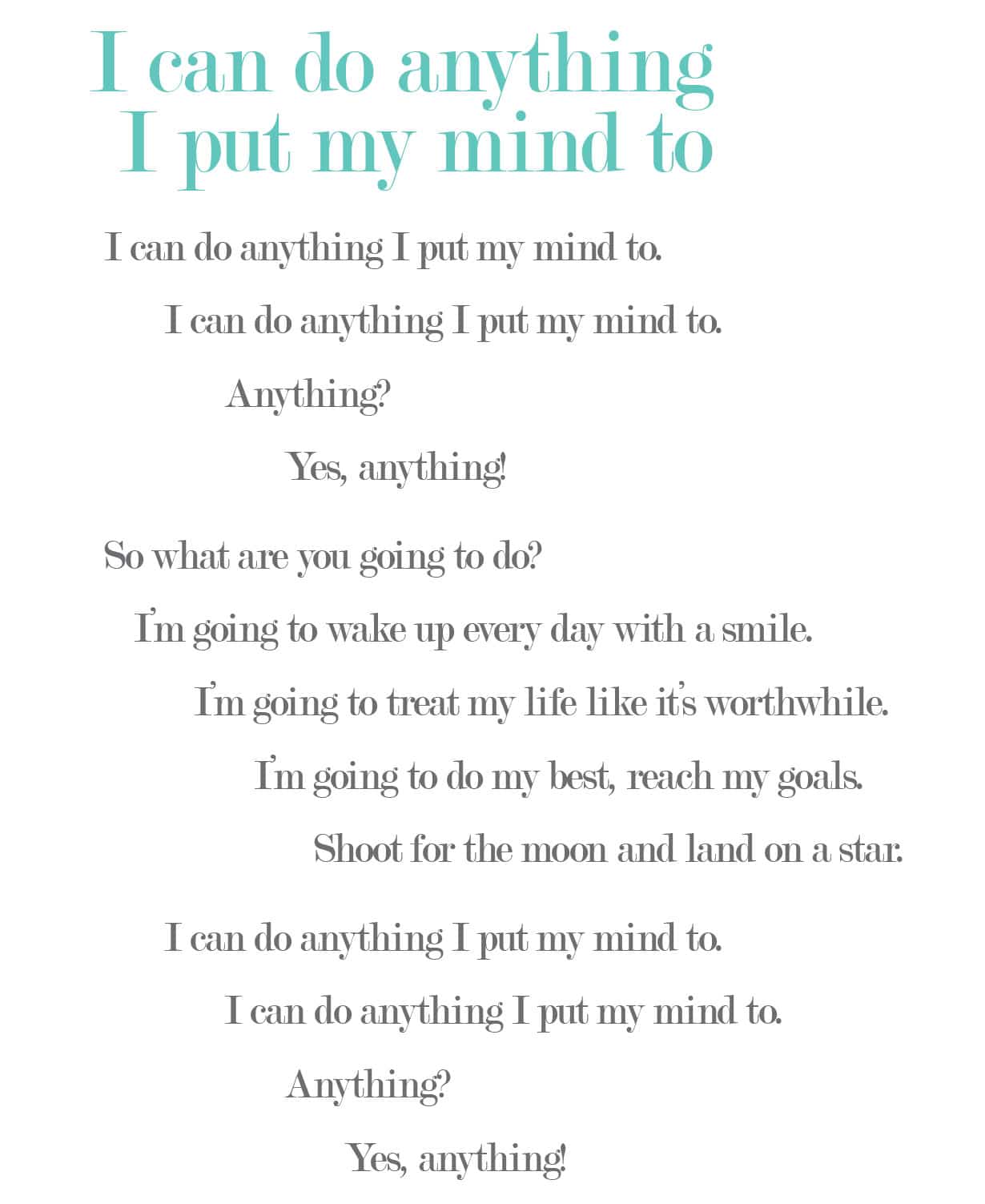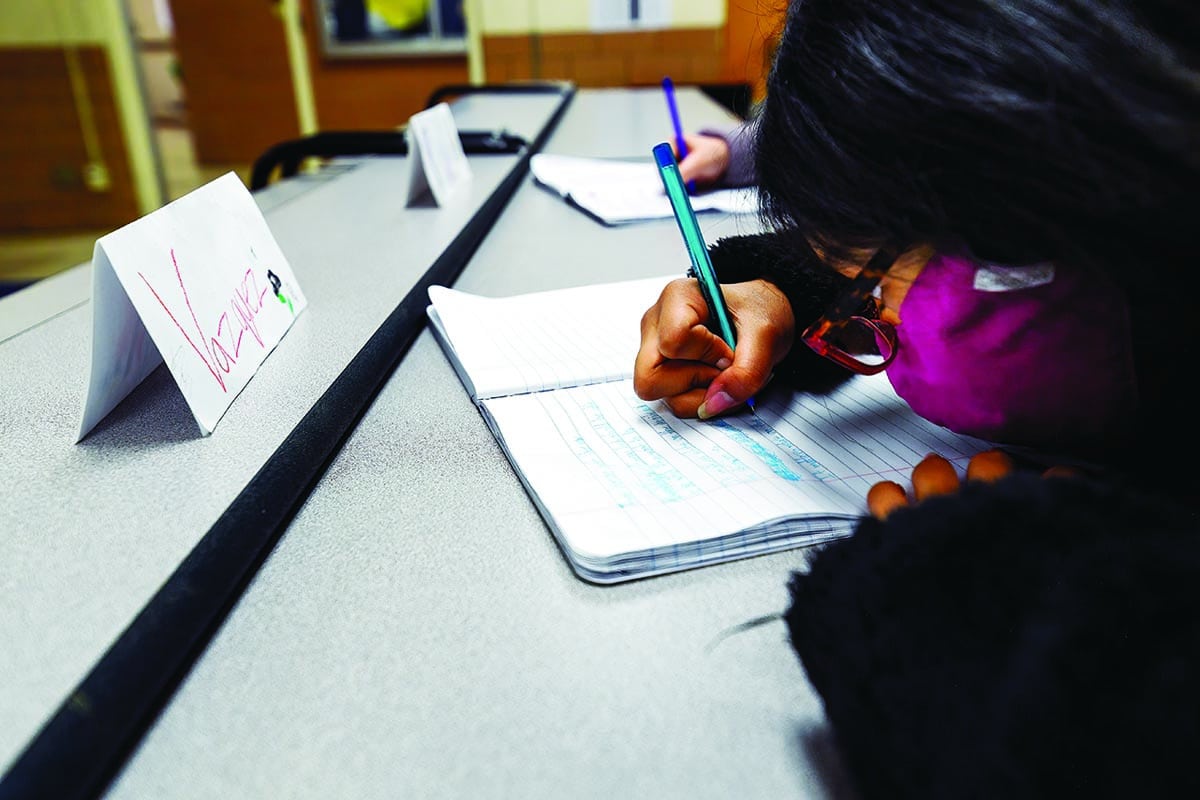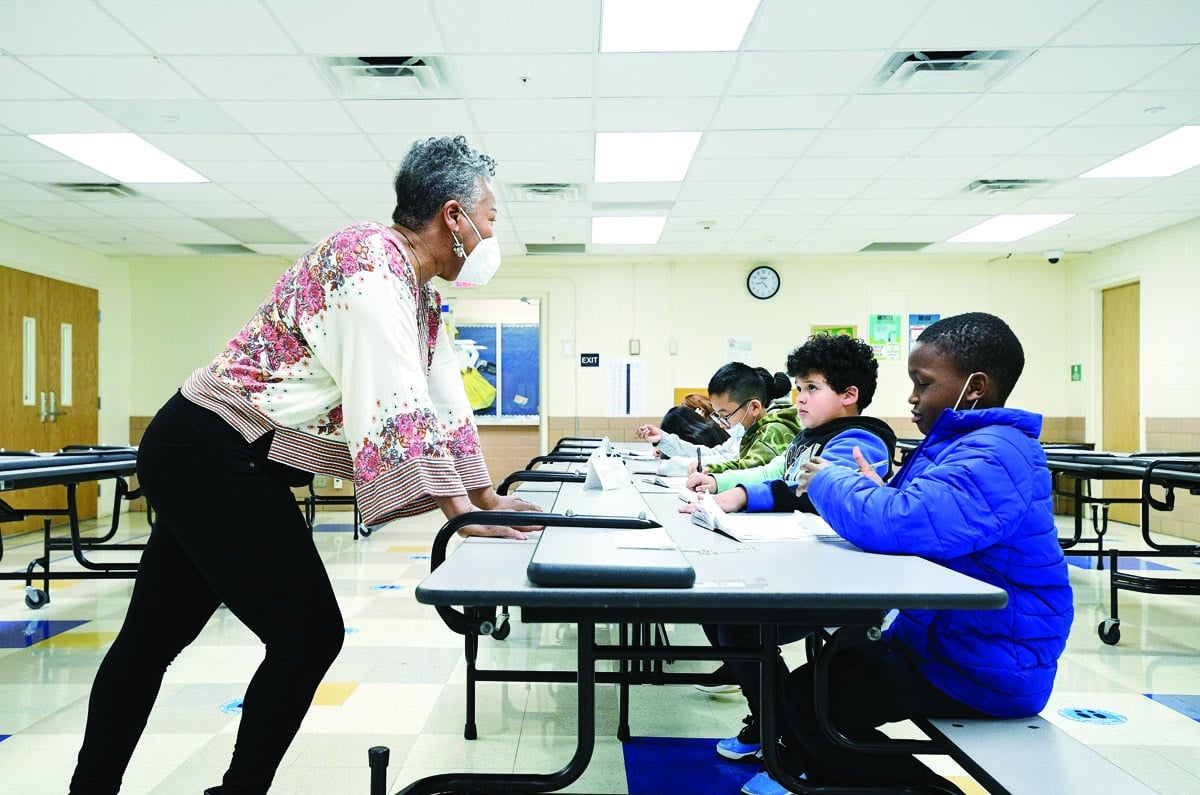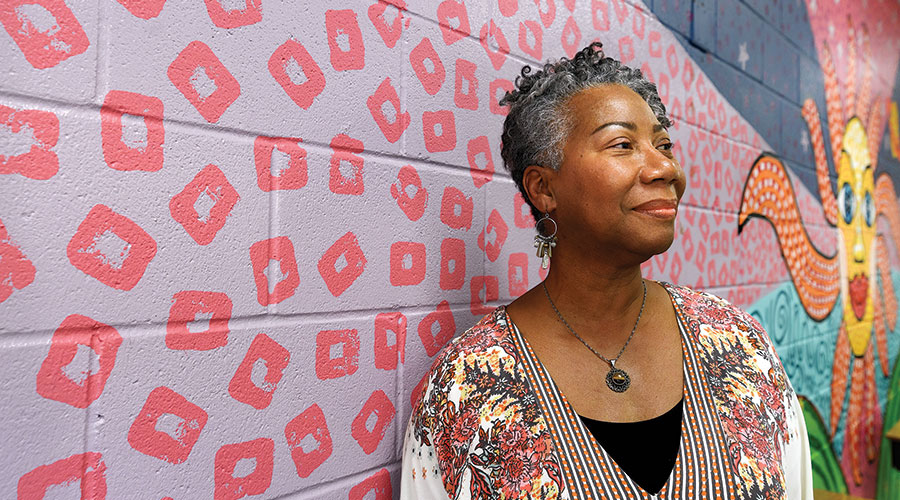
Rhyme and Reason
By Babs Rodriguez
Photos by Hannah Ridings
Poet educator Carolyn West believes that bending words generates the power to change young lives
For Carolyn West, poetry connects the dots between education and quality of life. She collects words, then stretches, examines and utilizes them as survival tools, and she encourages students to do the same. As founder and executive director of the Thank You Darlin’ Foundation, her efforts in and out of the classroom help disadvantaged youth experience academic and personal success. She also opens eyes — and mouths — by combining learning with competitive arts performances.
Asked about her path, the almost 70-year-old West says the seed for the Fort Worth-based foundation was planted in respect for her mother.
“I was born in Shreveport, Louisiana, then moved to Chicago with my mom when she was looking for opportunities better than cleaning houses or picking cotton,” she says. “After my mother passed, I wanted to carry on her legacy of kindness and decided to form a nonprofit. I asked my daughter what to name it. Instantly, she remembered her grandmother always expressing gratitude, that even when she was suffering, she used to say, ‘thank you, darlin’’— a term of endearment that made people feel warm, loved and valued. That expression of gratitude became our name.”
The nonprofit was still focusing its mission when, in 2004, West moved to Texas for her then-husband’s job. It was at a neighborhood Starbucks in east Fort Worth that the foundation found what West calls its “seeding shape.”
West met local artist Debbie Ursini — now on the foundation’s board —
at the coffee shop when she was struggling to transplant the tender seedling she had planted in Chicago. She shared TYDF’s original goal of caring for women sandwiched between caring for ailing parents and raising children, while also catering to husbands and working outside the home.
“We started with book groups and moved into offering everything from yoga to poetry readings.”
Ursini encouraged West to continue her work. “We talked to the Starbucks manager, and they gave us a whole corner for our gatherings.”
Women who came in for writing exercises were soon given a microphone and encouraged to read their poems. But it was when Ursini brought in FWISD administrator Charlece Thomas James that the foundation found its rhyme and reason. “Charlece said, ‘You need to do this for kids.’”
The Thank You Darlin’ community outreach vine curved in a new direction.
“We always had a hand out to women in the community. But what we saw time and again is that if the mothers are not OK, we can’t expect their children will be OK,” West says. “I knew the power of poetry for children because while we were in Chicago, my daughter performed in poetry slams,” West says. She had a life-changing moment when she saw her then-teenager perform. “I sat in the audience and watched as my daughter brought the audience to their feet. They rose up for her words. I was blown away. Aha! I recognized that a great tool to spark kids’ interest in words was also a sneaky way to teach literary conventions — similes, metaphors, personification.”
The foundation became a service provider for area schools in 2006. West’s trademarked Voice2Youth programs, sprouted in classrooms as a way to strengthen communication skills, have flowered into poetry slams. Her daughter, now a professor at Illinois State University, traveled to TYDF competitions as what is known as the “sacrificial poet.” West explains: “You have someone who is well-versed in the art show contestants what is expected of them. If they are still just reading their words, they need someone to show them how to bend the words, how to crunch them.”
After three years, West’s daughter suggested that for the program to grow stronger, West should become a poet herself.
“I thought, ‘Well, OK.’ Then I studied, I studied, I studied. She had challenged me,” West says.
She also found guidance from students. “A child told me I need to read Shel Silverstein, so I studied his books. I read Maya Angelou and Nikki Giovanni. I learned various literary techniques, and I began to practice.”
She laughs when she says that while she stays away from being tapped as a sacrificial poet, she was delighted to emcee the 2019 Voice2Youth poetry slam hosted by TCU, where a TYDF partnership with the communications department provides many young participants their first exposure to an institution of higher learning.
Most often, West’s programs service elementary schools, but poets from grades three through 12 have been published in the eight TYDF anthologies.
West, who leads an after-school program two days a week at FWISD’s East Handley Elementary, recounts experiences at schools from Crowley to Keller and the many lessons she has learned in 18 years of teaching rhyme, metaphor and more to kids who sometimes have no desks. When a student wowed her with a poem that seemed impossibly good for a fledgling wordsmith, West made a search that revealed it to be work by Angelou.
“That was a teachable moment.” The student shared that when she read the poem, she loved it so much but was sad she could not write that way. Transcribing it felt like channeling genius. The class learned why plagiarism is stealing, but their deep dive into the poem inspired West to reach out to Angelou. “She let us publish her poem in our anthology because she knew ‘imitation writing’ was how the kids learned and were inspired.” The poet also agreed to let students interview her but, sadly, she passed away before that happened.
The pandemic has curtailed the foundation’s classroom reach. And for now, West is the only full-time employee. Volunteers are made up of teachers, including retirees, interns from UTA and local artists. Five board members work to spread the word and help find patrons. The generosity of supporters provides journals and underwrites the publication of the anthologies that are used to teach.
West encourages students to hone their words as tools of success. “By sharing their words, they learn to face down the fear of public speaking. They are here to become better readers, writers and speakers, master the skills that, all together, create better communicators.” The goal is to eventually take the stage at a poetry slam, including one open to the public this April.
We have one last question for Carolyn West: “Do you consider yourself a poet?”
She laughs hard, then pauses.
“Yes, I do!” she says. “I do, I do, I do, I do.”
THE DETAILS
Thank You Darlin’ Foundation The nonprofit has helped thousands of disadvantaged youth experience academic and personal success through the arts. Visit the website to learn more, see how you can help, and find updates on the April 16 Voice2Youth Poetry Slam at I.M. Terrell Academy. 817-306-4441, tydfoundation.org

